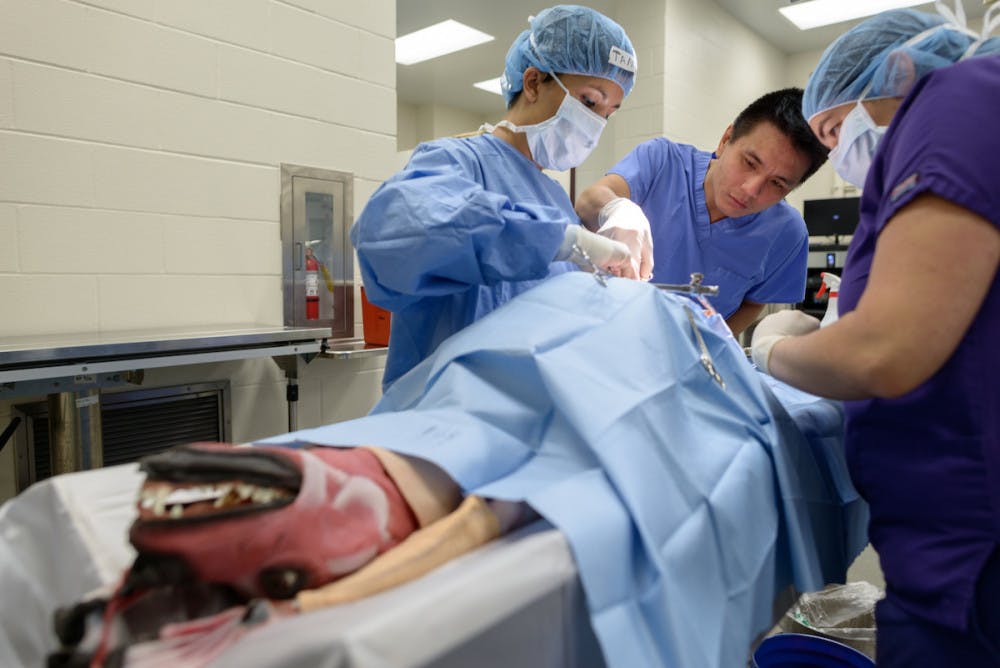When Stanley Kim came to UF in 2006 to complete his small animal surgery residency, he did not realize he would become one of the most influential professors in the college.
Kim, an associate professor in UF’s College of Veterinary Medicine, played a key role in developing a synthetic canine cadaver, which will replace the old method of using real canine cadavers.
He said he has been working on the project for about two years now, after finding many problems with using real canine cadavers, such as acquiring and storing them.
The synthetic cadavers are anatomically accurate, and the tissue is designed to feel realistic and behave the same as a real cadaver, Kim said.
He said the synthetic cadavers will allow students to practice common procedures and become more surgically proficient.
“We were especially interested in trying to simulate as realistic an experience for the students as possible,” Kim said.
He said this is only the first generation of the synthetic cadavers, so they are going to be working on making them more realistic and cost-effective.
“We’re constantly working on ways to improve the model,” Kim said.
He said he hopes to see them eventually used in colleges across the nation and maybe even the world.
Kim will receive the 2017 Zoetis Distinguished Veterinary Teacher Award for not only his work with the synthetic canine cadavers but also for his quality of teaching and impact on student learning.
He has worked at UF as an associate professor since 2011, and he said he enjoys teaching because he feels it is a way to make a difference in veterinary medicine by training the next generation of veterinarians.
“If I can contribute to training many veterinarians, it’s quite rewarding to see that some of my work is going to have a wider impact,” Kim said.
Dr. Rowan Milner, the chair of the Department of Small Animal Clinical Sciences, said he was one person who nominated Kim for the Zoetis award.
He said he chose Kim because he is widely recognized for his research and uses advanced technology, like the synthetic cadavers, to improve students’ comprehension of veterinary medicine.
“He’s an excellent teacher,” Milner said. “His presentation to students in the classroom is excellent.”






